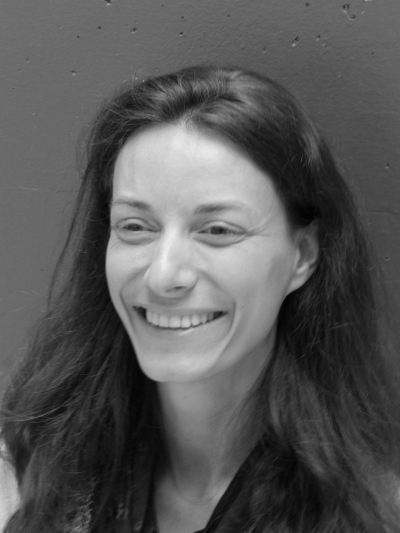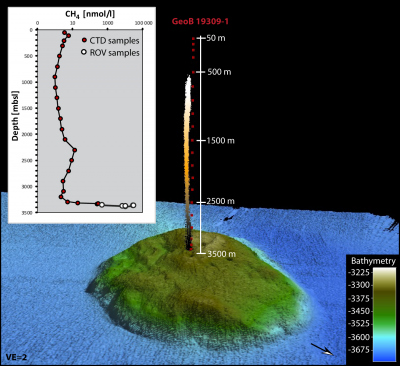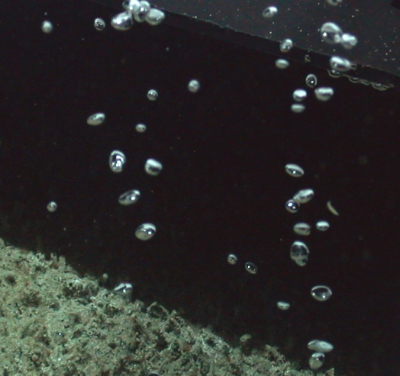My general research interest is about understanding the processes controlling cold seep systems, in particular the fluid- and gas circulation and emission into the hydrosphere and atmosphere. The current debate about a possible methane contribution to the present climate change is of high importance and field of my recent work at MARUM.
Generally, I perceive the Earth as a complex and integrated system, which consequently needs to be investigated using interdisciplinary methods. Thus, various approaches and methods are always combined in my work to gain a broader picture. In addition to my geological background, I have been able to deepen my understanding about geophysics, geochemistry, and biology and I am including computational models to put the field results into a wider context. Since the beginning of my PhD, my research focus is on the investigation of cold seeps. My interest is not only on individual aspects related to cold seeps, but rather how different processes interact at these exceptional marine systems. Cold seeps are defined as areas of the seafloor, at which uprising fluids typically including hydrocarbons, reach the shallow subsurface and are partly released into the water column. However, the system includes a complex cycle. Firstly, organic material produced in the water column is deposited, buried and subsequently altered chemically and by microbes. Then again, the altered material is transported through the sediment column towards the seafloor. Yet, the cycle is not finished at the seafloor. Diverse bio‐ and geochemical processes act within and on the seafloor. Even the portion reaching the water column is modified depending on the environmental setting before eventually reaching the atmosphere. The control mechanisms influencing all these processes and the factors playing a major role are most interesting for me to gain a better understanding.
Specific research topics include:





